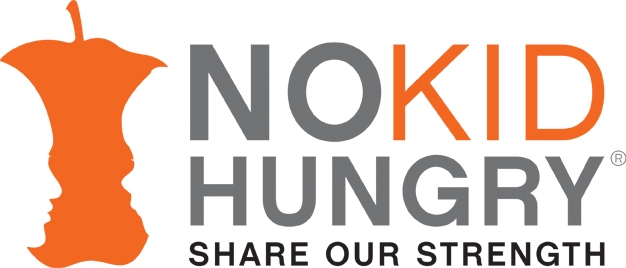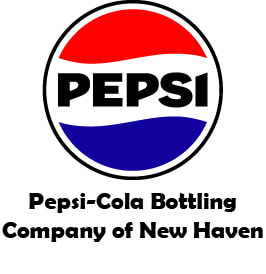Students who eat school breakfast are 20 percent more likely to graduate high school, average 17.5 percent higher on math test scores, and attend 1.5 more days of school per year. But currently, too many students from low-income families miss out on free or reduced-price school breakfast because it is most often served before they arrive, or they do not want to face the stigma of eating alone in the cafeteria. Making breakfast a part of the school day, by serving it in the classroom or at “Grab n Go” carts, can overcome these barriers. For example, Rogers Middle School offers Second Chance Grab and Go breakfast to all students between second and third hour. Over 50 percent of students participate and the program has recently expanded to Affton High School with help from student leadership.
“Strategic partnerships are at the core of making No Kid Hungry a reality in Missouri and across the country,” said Duke Storen, Senior Director at No Kid Hungry. “We commend Governor Nixon for taking the initiative to bring the right people to the table. His leadership and commitment will ensure all kids in Missouri get the healthy food they need every day.”
In addition, when schools close in the summer months, free summer meals sites are available through the federal Summer Food Service Program. But barriers like transportation challenges, severe weather, and unsafe neighborhoods make summer the hungriest time of year for kids in need. This can have a long-term impact on their health, development and ability to learn.
To encourage more schools to make breakfast part of the school day, the Governor announced that the Missouri Department of Elementary and Secondary Education will partner with Feeding Missouri and the Midwest Dairy Council on a statewide School Breakfast Challenge. No Kid Hungry Missouri will also work to connect more kids to free summer meals by raising awareness of the program among low-income families and increasing the number of sites and sponsors across the state.
The Missouri Department of Health and Senior Services, the Missouri Department of Social Services, the Missouri Department of Elementary and Secondary Education and the Family and Community Trust have been working with No Kid Hungry over the past several months to develop strategies and goals as part of a three year plan to end child hunger in Missouri.
Seed funding for the No Kid Hungry Missouri campaign will come in part from a $500,000 federal Community Services Block Grant. These grants are designed to provide services and other programs that improve the living conditions of low-income individuals.
“Hunger is one of the biggest obstacles to learning for students, affecting their behavior and concentration in the classroom,” said Missouri Commissioner of Education, Dr. Margie Vandeven. “Our schools lessen that obstacle every time they feed a child breakfast or lunch. No Missouri child should have to worry about finding his or her next healthy meal.”
“Breakfast sets the curve for success,” said Jessica Mackey, Midwest Dairy Council Registered Dietitian. “Programs like the Missouri School Breakfast Challenge will help ensure all Missouri students have access to a healthy morning meal to fuel them up for an active day of learning.”
In addition to the School Breakfast Challenge, the No Kid Hungry Missouri campaign will work with public and private sector partners to:
· Increase the number of school districts offering “Breakfast after the Bell,” through outreach and startup grants. In Fiscal Year 2015, an estimated 58 percent of students eligible for free or reduced price lunch also received breakfast at school. No Kid Hungry Missouri will seek to increase this to 70 percent over the next three years.
· Increase access to meals during the summer months, when school is not in session. By enhancing outreach and identifying new sponsors for summer meals in underserved communities, No Kid Hungry Missouri will aim to increase the number of summer meals served to 6.6 million over the next three years.
· Increase the number of schools offering after school snacks and meals. Last year, 647,279 snacks and meals were served at 350 sites. The goal is to ensure at least 30 percent of students who are eligible for free or reduced price lunch, also receive an after school snack or meal.
· Ensure low-income children who qualify for federal benefits through the Supplemental Nutrition Assistance Program are enrolled.
Ending childhood hunger was one of the Ferguson Commission’s Signature Calls to Action issued last year.
About No Kid Hungry
No child should go hungry in America, but 1 in 5 kids will face hunger this year. Using proven, practical solutions, No Kid Hungry is ending childhood hunger today by ensuring that kids start the day with a nutritious breakfast and families learn the skills they need to shop and cook on a budget. When we all work together, we can make sure kids get the healthy food they need. No Kid Hungry is a campaign of national anti-hunger organization Share Our Strength. Join us at NoKidHungry.org.
About Midwest Dairy Council
Midwest Dairy Council®, an affiliate of National Dairy Council, is the nutrition education division of Midwest Dairy Association. The Council is dedicated to dairy nutrition research and education through the investment of 8,000 dairy farm families across 10 Midwestern states, and is committed to child health and wellness through our collaborative program, Fuel Up to Play 60. For more information, visit www.midwestdairy.com.





 RSS Feed
RSS Feed